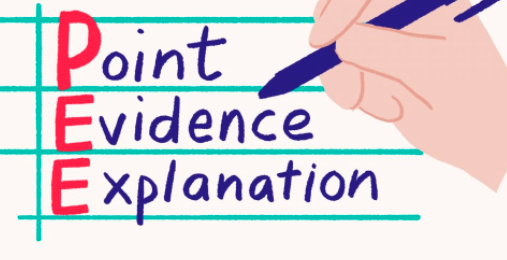It’s exam season already! You’re probably getting on with your revision. Learning how to answer exam questions can be just as important as revising your subjects. There’s a skill to answering them–and the good news is you can learn it here. Below, we’ll go over some tips on how to read questions (yes-read) and then how to go about answering them.
As a *bonus* we’ve got our free Revision Handbook, which covers loads more exam hacks and revision resources!
Let’s dive in…
- Read the question.
- Underline key words in the question.
- Plan your answer and keep track of time.
- Make sure you’re backing your answer.
- Come back to the question.
- With multiple choice questions–get rid of wrong answers.
1. Read the question.
This might sound super obvious but with the pressure of the exam hall, a lot of students don’t read exam questions carefully. Your eyes might skim over the question and miss what it’s asking you to do.
2. Underline key words in the question.
To make sure you get what the question is asking you, underline key words. Exam question words might ask you to: describe, explain, analyse, compare, contrast, examine, discuss.
Here’s a breakdown of what some of those words actually mean:
| Question words | What they’re asking you to do |
Define | Tell us (explain!) what this means. |
Describe | What is that? Give details about the topic so that we understand it better. |
Illustrate | Explain with proof and details–this can be with diagrams and examples. |
Compare and contrast | Show how the things in the question are alike and different. |
Discuss | Go over a topic in detail. Explain the pros and cons–all sides of it. |
Analyse | Break down the topic into parts. Then look at how those parts are connected. Think of the pros and cons of them, and use evidence to back up what you say. |
Summarise | Give short and clear descriptions of the main points. |
3. Plan your answer and keep track of time.


You’d be surprised how quickly time can pass–even in a 2 hour exam. It’s best you plan how long you’ll spend on each question. Put aside a bit of extra time for trickier questions. With an essay, give yourself plenty of time to plan, write and review your draft.
4. Make sure you’re backing your answer.


Almost every kind of exam paper question will ask you to back your answers, or in other words, prove how you got there. Even in Maths, showing your work is needed on some questions, and it can earn you marks too. So be ready to explain and give sources to show where you’re coming from.
5. Come back to the question.
If you’re stuck, you don’t want to waste too much time trying to work it out. To make sure you get as many marks as you can, skip the question and come back to it. And even if you’ve answered the question, come back to it again later. You might get inspired the second time around and see something you missed.
6. With multiple choice questions–get rid of wrong answers.
When it comes to multiple choice questions, read the question carefully and underline key words. Before looking at the options, guess the answer. Then, as you read through the different choices, get rid of the ones you definitely know are wrong. That way if you’re guessing, the odds are more on your side.
And there you have it! Some extra tips that can help you do your best in the exam hall. If you’d like some more exam technique and subject-specific tips, check out our tutors’ advice on our TikTok channel.




